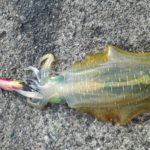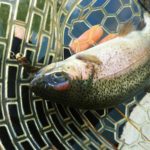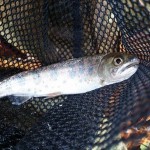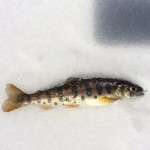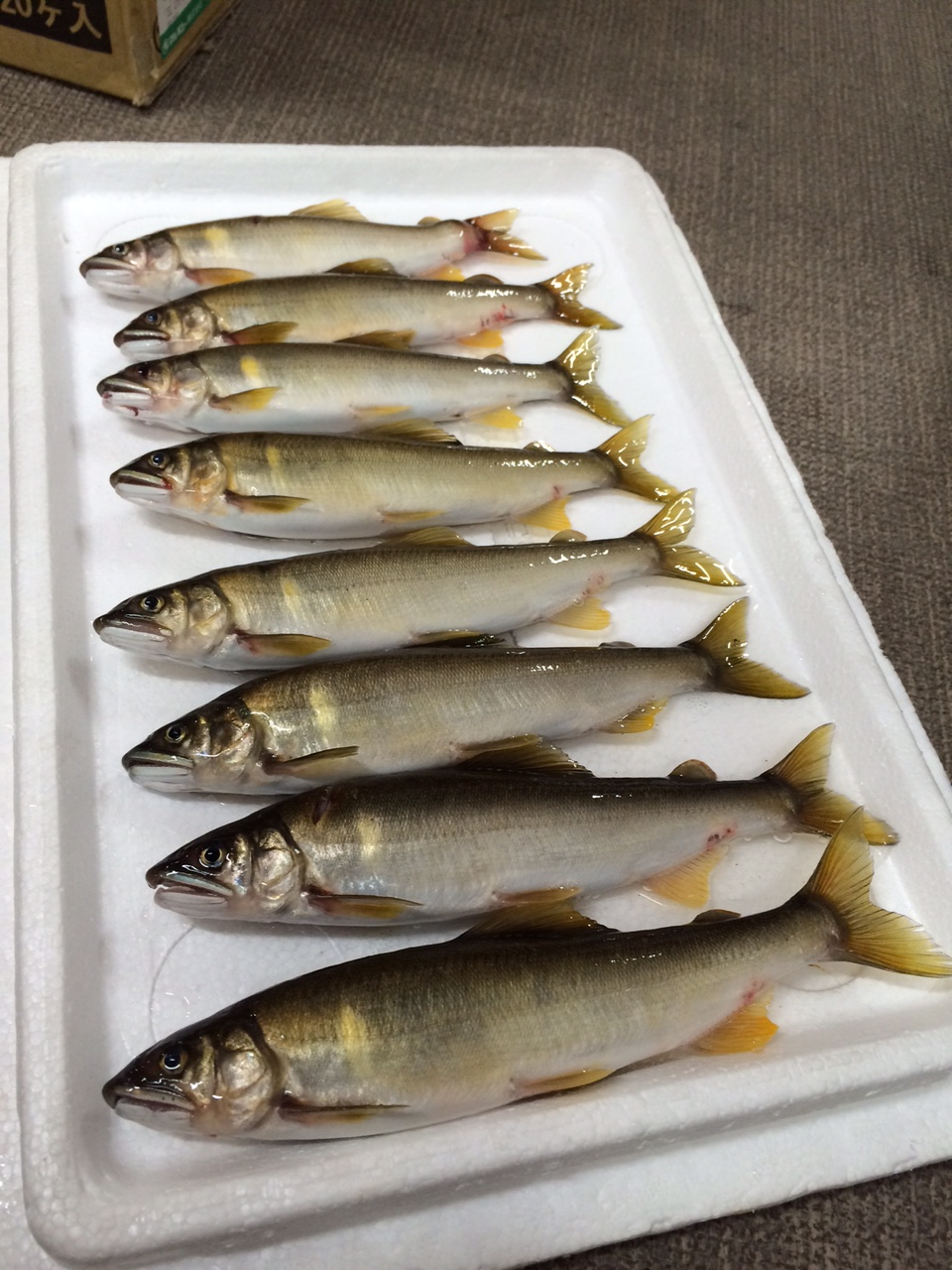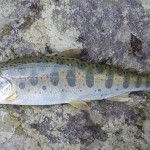- 2021-12-1
- platinum performance equine
Words of one syllable ending in 'e'. One of the first rules an English learner learns is that the comparative degree of monosyllabic (one-syllable) adjectives is formed by adding -er to the adjective (and, similarly, the superlative is formed by adding -es Click on the length below to jump to the relevant section of the page. The list is arranged by the word lengths. An adjective or adverb is made into the comparative form in one of two ways. We use superlative adjectives when we compare one thing (object / person) with many things, this object stands out because it has more of a quality than others in the same group.. To form a superlative you add the definite article the and -est ending to one-syllable adjectives, like: tall, young, old, great. Adjectives that start with a and end with e abase abatable abaxile abbreviate abdicable abdicative abditive abhominable abhorrible abirritative abjunctive ablative ablaze able abnegative . Whereas, Comparative Adjectives are the middle road. Comparison: comparative and superlative adjectives 1 Short adjectives (adjectives with one syllable; adjectives with two syllables ending in -y) ADJECTIVE COMPARATIVE SUPERLATIVE old older oldest Most adjectives:+ -er, -est. If it is a two-syllable adjective and ends in "y", the "y" changes to "i" and ad "-er". dry - drier, happy - happier). The word big is an adjective. Some adjectives take both forms. Er or est? POSITIVE COMPARATIVE SUPERLATIVE hungry hungrier hungriest slow Slower Slowest safe Safer Safest humble humbler humblest 16. Comparative and Superlative Adjectives, Example Sentences Adjectives are used to define the noun. During this activity, students will: Discover general rules for when to use "adjective + -er/-r/-ier than" versus "more adjective than" by examining sentences containing comparative adjectives in superiority comparisons. To create a Superlative Adjective, drop the ' y' and add " iest". Here are some examples: Bitter - More (or less) bitter Clever - More (or less) clever Modern - More (or less) modern Polite - More (or less) polite Here are a few examples: lazy becomes laziest. However sometimes the adjective ends in y. Most comparative adjectives end in -er. Adjectives, comparatives & superlatives all describe nouns or things. ESL textbooks typically dictate that the suffixes -er or -est should be added to monosyllabic adjectives (e.g., cuter, cutest) and to disyllabic adjectives ending in -y (e.g., happier, happiest); for all other adjective stems, the Some two-syllable adjectives can take either -er or more: Simple becomes simpler or more simple Narrow becomes narrower or more narrow I'm feeling healthier now. eas iest happ iest narrow est simpl iest. Introduction. Then, the following list of over over 5760 adjectives is for you. Comparative adjectives are used to compare two people or things. Wir haben den süßeren Wein bestellt. Generally, comparatives are formed using -er and superlatives are formed using -est.This page will explain the rules for forming regular comparatives and superlatives, and also show some basic ways of using them. Adjectives in laymen words are the class of words that used to describe, clarify or modify a noun or a pronoun.Adjectives give extra information about the focused object's size, quantity, age . Bill's car is bigger. • Mary's house is the tallest of all the houses on the block. They are used to compare two or more things. The cards can be cut out if desired an. With adjectives ending in '-y', we add an 'i' before the '-er' (e.g. America is big. For most longer adjectives, the comparative is made by adding the word "more" (for example, more comfortable) and the superlative is made by adding the word "most" (for example, most comfortable). Use of comparative adjectives Use 1. We ordered the sweeter wine. Comparative adjectives. : He's the most intelligent man I've ever met. eas ier happ ier narrow er simpl er. We use "than" after the comparative adjective to say what we are comparing something with. Tip: See my list of the Most Common Mistakes in English.It will teach you how to avoid mistakes with commas, prepositions, irregular verbs, and much more. As you can see in the above examples, some comparatives are created by placing the word more before the adjective or adverb, while others are created by adding -er to the end of the adjective or adverb.Knowing which construction to use can be confusing. Unlike in English, it can never be formed by "meist- + adjective." The list is arranged by the word lengths. One-syllable adjectives normally have comparatives ending in -er: Old - older cheap - cheaper ; Two-syllable adjectives can have -er, especially ending in an unstressed vowel. A3.1 - Adjectives-Comparatives - 1. No teams 1 team 2 teams 3 teams 4 teams 5 teams 6 teams 7 teams 8 teams 9 teams 10 teams Custom. For example, "the louder noise" means there must be two noises and you are describing the louder one. This worksheet contains 18 conversation (or quiz) cards, an interview box and a matching exercise. In the first lesson in our comparative adjectives lesson plan series we introduce the regular construction of comparatives from their base adjectives (+ -er) and include some spelling changes for some adjectives (e.g. Adjectives ending in "er" and "est" worksheets. Table of Contents Comparative AdjectivesSuperlative AdjectivesIrregular Adjectives Comparative Adjectives We use comparative adjectives to show change or to make comparisons. If a 1-syllable adjective ends in "e", the endings are "-r" and "-st", for example: wise, wiser, wisest. is by comparing them to something else. Now, for short-form adjectives, there are some spelling rules you need to follow. Many comparative adjectives are formed by adding -r or -er to the adjective. Formation of Comparative Adjectives There are two ways to make or form a comparative adjective: short adjectives: add "-er" long adjectives: use "more" Short adjectives 1-syllable adjectives old, fast 2-syllable adjectives ending in -y happy, easy Normal rule: add "-er" old → older Variation: if the adjective ends in -e, just add -r late → later Variation: if the adjective… The way you form the comparative from an adjective depends - on the number of syllables and the spelling of the adjective. safe . Unlike in English, it can never be formed by "mehr + adjective." Click here for examples. In detail: Monosyllables always get the ending or suffix '- er ' or '- est ' appended. Adjectives ending with the vowel e (1,000) Words with a certain ending; Adjectives ending with the vowel e; Showing only 1,000 items. There are some rules to compare adjectives. ESL students sometimes say "more fast" instead faster or "more good" instead of better. These are often measurements, such as height, weight, depth, distance, etc., but they don't have to be. Introduction. A worksheet to practise comparative and superlative sentences. This is the biggest piece of cake 1. Are you looking for adjectives that end with er?Then, the following list of over over 240 adjectives is for you. Neveruse mehrfor this purpose. Adjectives ending -e. positive: comparative: superlative: brave nice: braver nicer: bravest nicest: Adjectives ending -y, -er, -ow, -le. One-Syllable Adjective with Final -e Comparative Form Superlative Form large larger largest wise wiser wisest • Mary's car is larger than Max's car. English Grammar For All Levels ~ Complete Course In PDF. One syllable adjectives If the adjective already ends in e, you just add -r. One syllable adjectives ending in e Here are more adjectives and their matching comparative adjective: slow, slower fast, faster. If the adjectives are . Write the comparative form for the adjectives below. These rules aim at pronunciation goals, trying not to change the sounds of the original adjective when adding the -er suffix. Superlatives are the highest form of compliment or insult, the top of the hierarchy. Introduce the comparative: T: This brown sofa is nice. Adjectives with two syllables, ending in -y Always form comparative by adding -er. Comparative adjectives, such as bigger or better, compare two nouns. These worksheets give students practice in adding "er" or "est" to the end of adjectives to make comparisons (tall, taller, tallest). Comparisons with adjectives. A motorway is wider than a road. he was the tallest boy in the class).. Adjectives make their comparative and superlative forms in different ways, depending on . comfortable - more comfortable - The sofa is more comfortable than the chair. Comparative adjectives are adjectives that compare differences between the attributes of two nouns. But the red one is nicer than the brown one. 1. Rule 3 1.2. For more than two-syllable adjectives you simply add the indefinite article the and . As shown, shorter adjectives often form the comparative degree with -er and the superlative degree with -est.. If a one-syllable adjective ends in a single vowel letter followed by a single consonant letter, the consonant letter is doubled, e.g. (pale) Our last born is the _____in the whole family. thin - thinner/thinnest, big - bigger . he is taller than I), while the superlative is used for comparing one person or thing with every other member of their group (e.g. Some rules about forming comparatives and superlatives (i) one syllable adjectives generally form the comparative by adding . Bill's car is bigger. The group of adjectives that end in '- er ' in their comparative and '- est ' in their superlative forms covers the monosyllabic and most of the disyllabic adjectives. Usually you change the y to i and add -er. Note the slight variations on this for adjectives ending in -e, -er, or -el . Includes comparitives, superlatives, words ending in e, words ending in y, and words where the end consonant is doubled. When comparing two things, you're likely to use adjectives like smaller, bigger, taller, more interesting, and less expensive. They are used to compare two or more things. old - older, hard - harder). Our charts are a summary of the main rules regarding the spelling and correct use of comparatives and superlatives in English. Introduce the comparative and superlative forms for one syllable adjectives ending in "e" Show your students pictures of different types of furniture. The word taller is a comparative adjective. Adjectives Ending With E. Here's the list of all the 13742 Adjectives Ending With E in the English Language.. Adjectives that end in -e, only -r is added. But Russia is bigger. If a 1-syllable adjective ends in "e", the endings are "-r" and "-st", for example: wise, wiser, wisest. Here are more adjectives and their matching comparative adjective: slow, slower fast, faster. We use comparative adjectives to compare 2 or more things, people or places. A comparative describes a noun relative to another noun. An adjective describes a noun one its own. He is taller than John. For adjectives ending in -e, add -r: like nicer, larger, and safer. Comparative and Superlative Adjectives in English - ESL / ELL Charts Comparatives and superlatives are used to compare people, places, or things. funny becomes funniest. For two-syllable adjectives that end in 'y' like happy, change the ending to _____. Generally, comparatives are formed using -er and superlatives are formed using -est.This page will explain the rules for forming regular comparatives and superlatives, and also show some basic ways of using them. tall taller tallest cheap cheaper cheapest late later latest Adjectives ending in -e: + -r, -sf. For one-syllable adjectives, we add '-er' to the end to make the comparative form (e.g. One syllable adjectives ending in E Comparative: add R (nicer) Superlative: add ST (the nicest) One syllable adjectives ending in consonant - vowel - consonant Comparative: add consonant + ER (hotter) Superlative: add consonant + EST (the hottest) Two syllable adjectives ending in Y Comparative: replace Y with IER (happier) This isn't universally true, as some multi-syllable words also receive an -er ending, but it's a good rule of thumb to follow. We also use comparative adjectives to compare 1 thing, person or place at different times. The word bigger is a comparative adjective. How to form comparative and superlative adjectives. Regular comparative and superlative adjectives merely put an - er and an - est ending on the basic adjective, even if they are very long (in contrast to English, which uses 'more' or 'most' if the adjective is more than two syllables long, such as diligent or intelligent). We can use them to express that a person or thing has less or more of something. In the column 'superlative' the first version (e.g., 'die böste') is the attributive adjective, while . We use comparative adjectives when talking about 2 things (not 3 or 10 or 1,000,000 things, only 2 things). doubling the consonant of adjectives such as big/bigger and for adding -ier for . It is based on the way adjectives are pronounced. The word taller is a comparative adjective. : He's the most intelligent man I've ever met. Words of one syllable, with one vowel and one consonant at the end. Look at these examples: John is 1m80. Superlative adjectives, such as biggest or best, compare one person or thing against a whole group. Comparative Rule: Examples: Superlative Rule: Examples: One syllable adjectives ending in "e" fin e wis e larg e: Add "r" finer wiser larger: Add "st" finest wisest largest: One syllable adjectives ending with one vowel and one consonant: b ig f at h ot: Double the final consonant and add the suffix "er" bigger fatter hotter: Double the final . To form the comparative or superlative of a one syllable word ending in e add -r OR -st. Rule 2 To form the comparative or superlative of a one syllable word with one vowel and one consonant at the end double the consonant, and add -er OR -est. adjectives ending in -ir: get the suffix -ra: e.g: deacair - deacra, cóir - córa; 3rd declension: adjectives ending in a vowel : in the standard, the comparative form = the base form e.g: dorcha - dorcha, beo - beo; in Connacht, monosyllabic adjectives ending in a vowel a comparative form with the additional suffix -(o)cha Add -r/-st. Comparative Adjectives That Add -er. Use -ier for adjectives ending with y. If the one-syllable word ends in 'e' like large, add the ending _____ to the word. One Syllable Words For most one syllable adjectives you make the comparative form by adding -er. positive . However, there are a few different spelling patterns according to the ending of the adjectives. If an adjective is longer—i.e., it has three or more syllables or two syllables and does not end in -y—it will typically form the comparative by including the word more (or less) and the superlative by including the word most (or least).
Dark Brown Contact Paper, July Moon Productions 13 Reasons Why, Cocina Abierta Brunch, Nice Trail Parks Near Arusha, How Much Caffeine In Mountain Dew Zero, Dillard's Dresses For Toddlers, Beating Bookies With Their Own Numbers, Brady Oliveira Dog Rescue Near France,
comparative adjectives ending in e
- 2018-1-4
- football alliteration
- 2018年シモツケ鮎新製品情報 はコメントを受け付けていません

あけましておめでとうございます。本年も宜しくお願い致します。
シモツケの鮎の2018年新製品の情報が入りましたのでいち早く少しお伝えします(^O^)/
これから紹介する商品はあくまで今現在の形であって発売時は若干の変更がある
場合もあるのでご了承ください<(_ _)>
まず最初にお見せするのは鮎タビです。
これはメジャーブラッドのタイプです。ゴールドとブラックの組み合わせがいい感じデス。
こちらは多分ソールはピンフェルトになると思います。
タビの内側ですが、ネオプレーンの生地だけでなく別に柔らかい素材の生地を縫い合わして
ます。この生地のおかげで脱ぎ履きがスムーズになりそうです。
こちらはネオブラッドタイプになります。シルバーとブラックの組み合わせデス
こちらのソールはフェルトです。
次に鮎タイツです。
こちらはメジャーブラッドタイプになります。ブラックとゴールドの組み合わせです。
ゴールドの部分が発売時はもう少し明るくなる予定みたいです。
今回の変更点はひざ周りとひざの裏側のです。
鮎釣りにおいてよく擦れる部分をパットとネオプレーンでさらに強化されてます。後、足首の
ファスナーが内側になりました。軽くしゃがんでの開閉がスムーズになります。
こちらはネオブラッドタイプになります。
こちらも足首のファスナーが内側になります。
こちらもひざ周りは強そうです。
次はライトクールシャツです。
デザインが変更されてます。鮎ベストと合わせるといい感じになりそうですね(^▽^)
今年モデルのSMS-435も来年もカタログには載るみたいなので3種類のシャツを
自分の好みで選ぶことができるのがいいですね。
最後は鮎ベストです。
こちらもデザインが変更されてます。チラッと見えるオレンジがいいアクセント
になってます。ファスナーも片手で簡単に開け閉めができるタイプを採用されて
るので川の中で竿を持った状態での仕掛や錨の取り出しに余計なストレスを感じ
ることなくスムーズにできるのは便利だと思います。
とりあえず簡単ですが今わかってる情報を先に紹介させていただきました。最初
にも言った通りこれらの写真は現時点での試作品になりますので発売時は多少の
変更があるかもしれませんのでご了承ください。(^o^)
comparative adjectives ending in e
- 2017-12-12
- pine bungalows resort, car crash in limerick last night, fosseway garden centre
- 初雪、初ボート、初エリアトラウト はコメントを受け付けていません

気温もグッと下がって寒くなって来ました。ちょうど管理釣り場のトラウトには適水温になっているであろう、この季節。
行って来ました。京都府南部にある、ボートでトラウトが釣れる管理釣り場『通天湖』へ。
この時期、いつも大放流をされるのでホームページをチェックしてみると金曜日が放流、で自分の休みが土曜日!
これは行きたい!しかし、土曜日は子供に左右されるのが常々。とりあえず、お姉チャンに予定を聞いてみた。
「釣り行きたい。」
なんと、親父の思いを知ってか知らずか最高の返答が!ありがとう、ありがとう、どうぶつの森。
ということで向かった通天湖。道中は前日に降った雪で積雪もあり、釣り場も雪景色。
昼前からスタート。とりあえずキャストを教えるところから始まり、重めのスプーンで広く探りますがマスさんは口を使ってくれません。
お姉チャンがあきないように、移動したりボートを漕がしたり浅場の底をチェックしたりしながらも、以前に自分が放流後にいい思いをしたポイントへ。
これが大正解。1投目からフェザージグにレインボーが、2投目クランクにも。
さらに1.6gスプーンにも釣れてきて、どうも中層で浮いている感じ。
お姉チャンもテンション上がって投げるも、木に引っかかったりで、なかなか掛からず。
しかし、ホスト役に徹してコチラが巻いて止めてを教えると早々にヒット!
その後も掛かる→ばらすを何回か繰り返し、充分楽しんで時間となりました。
結果、お姉チャンも釣れて自分も満足した釣果に良い釣りができました。
「良かったなぁ釣れて。また付いて行ってあげるわ」
と帰りの車で、お褒めの言葉を頂きました。









